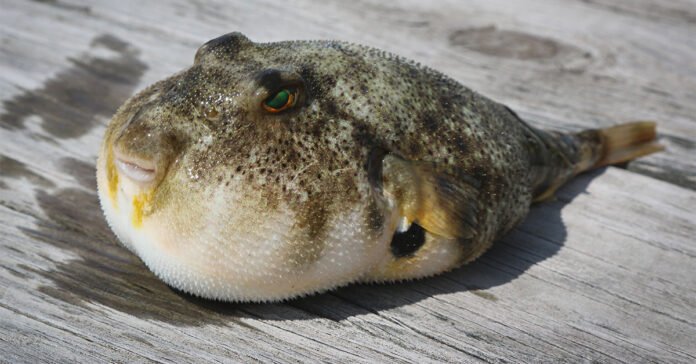In a heartbreaking incident, a Brazilian man tragically lost his life after eating pufferfish gifted to him by a friend. The incident sheds light on the lethal nature of pufferfish, known for its toxic flesh and the potential risks posed by consuming improperly prepared seafood. As authorities investigate the circumstances surrounding the man’s death, the incident serves as a cautionary tale about the importance of food safety and awareness.
The incident occurred in a coastal town in Brazil, where a group of friends gathered for a celebratory meal. Unbeknownst to the victim, one of his friends had acquired a pufferfish, also known as fugu in Japanese cuisine, as a gift for the occasion. Despite warnings about the dangers of consuming pufferfish and the need for specialized training to prepare it safely, the group decided to proceed with cooking and eating the delicacy.
Tragically, shortly after consuming the pufferfish, the man began to exhibit symptoms of poisoning, including dizziness, nausea, and difficulty breathing. Despite efforts to seek medical assistance, his condition rapidly deteriorated, and he succumbed to the effects of the toxin. The sudden and tragic loss of life sent shockwaves through the community, prompting authorities to launch an investigation into the circumstances surrounding the incident.
Pufferfish, renowned for its unique appearance and potentially deadly toxins, is considered a delicacy in certain culinary traditions, most notably Japanese cuisine. However, consuming pufferfish poses significant risks, as certain species contain potent neurotoxins, such as tetrodotoxin, which can cause paralysis, respiratory failure, and death if ingested in sufficient quantities.
Preparing pufferfish safely requires specialized knowledge and skills, as the toxic parts of the fish must be meticulously removed to minimize the risk of poisoning. In Japan, chefs who wish to serve pufferfish must undergo rigorous training and obtain a license to ensure that they can handle the fish safely. Despite these precautions, cases of pufferfish poisoning still occur, often due to improper preparation or consumption of illicitly caught specimens.
The tragic death of the Brazilian man underscores the importance of exercising caution when consuming seafood, particularly exotic or potentially hazardous species. While certain delicacies may hold cultural significance or culinary appeal, the risks associated with consuming them should not be underestimated. Educating oneself about the potential dangers of certain foods and seeking guidance from knowledgeable sources can help prevent tragic incidents like the one that befell the victim in this case.
Furthermore, the incident highlights the need for stricter regulations and enforcement measures to prevent the illicit sale and consumption of toxic seafood. In many regions, the sale of pufferfish is heavily regulated or outright banned due to the associated risks. However, the allure of exotic delicacies and the potential for lucrative profits can sometimes lead to the illegal trade of hazardous foods, putting unsuspecting consumers at risk.
In response to the tragic incident, authorities in Brazil have vowed to investigate the circumstances surrounding the man’s death and take appropriate action to prevent similar incidents in the future. This may include raising awareness about the dangers of consuming pufferfish, enforcing existing regulations more rigorously, and cracking down on the illegal trade of toxic seafood.
Ultimately, the death of the Brazilian man serves as a sobering reminder of the potential consequences of consuming certain types of seafood without proper knowledge or precautions. While culinary exploration and appreciation of exotic foods are to be encouraged, safety should always be the top priority. By exercising caution, seeking guidance from experts, and respecting regulations designed to protect consumers, individuals can minimize the risks associated with consuming potentially hazardous foods.
In addition to raising awareness about the dangers of consuming pufferfish and other toxic seafood, there is a pressing need for enhanced public education on food safety and responsible culinary practices. Educating consumers about the risks associated with certain foods, as well as providing guidance on safe handling, storage, and preparation techniques, can empower individuals to make informed decisions about their dietary choices.

